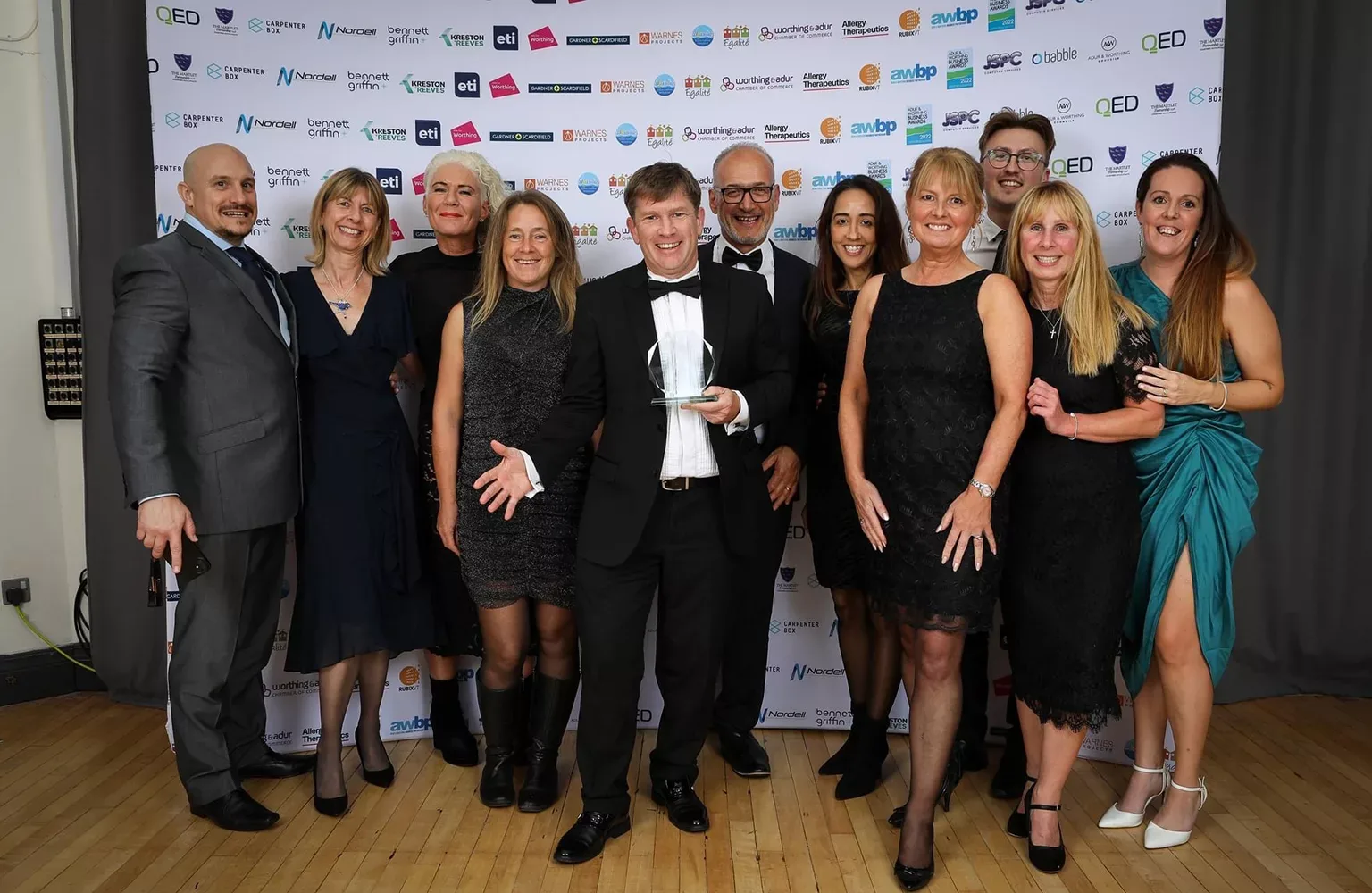With a business model rooted in sustainability, South Downs Leisure is making impactful changes to support its local community and the planet. Duncan Anderson, CEO, explains how, due to hard work and dedication, sustainability has become a way of life.
LOCAL ACTION, GLOBAL IMPACT
As Europe witnesses rising sea temperatures, increasing pollution, and a continued reliance on fossil fuels, the need for sustainable businesses is more pressing than ever.
South Downs Leisure (South Downs), a health and leisure trust based in Worthing, England, places sustainability at the centre of everything it does.
“Our customers and staff all recognise that we’re more than just a fitness suite or gym. We’re an organisation focused on sustainability, right at the heart of the community,” opens Duncan Anderson, CEO.
Having been a founding member of South Downs since 2015, and with a personal commitment to preserving the natural green spaces around him, Anderson made the radical decision to implement an extensive sustainability strategy within the trust in 2021 – and has never looked back.
“We are where we are because we’ve managed to change the culture of our organisation,” he reflects.
Guided by its triple bottom line principle of ‘people, planet, profit’, South Downs has been able to maintain a profitable business model whilst prioritising the planet and the people it serves.
Despite potential resistance towards ubiquitous sustainable practices in the face of recent global utility crises, South Downs remains unperturbed and steadfast in its commitment to making lasting changes to safeguard the world of tomorrow.
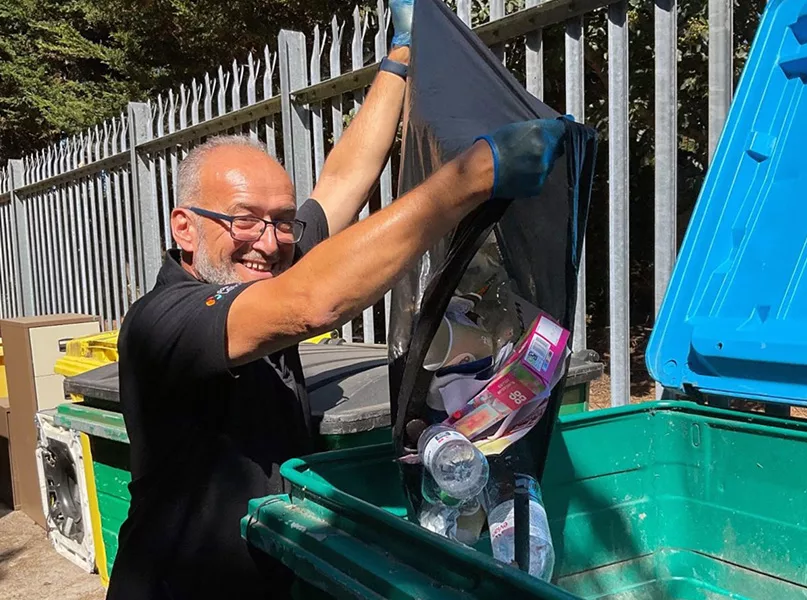
PEOPLE, PLANET, PROFIT
At the heart of South Downs, a collective belief in ‘people, planet, profit’ drives forth much of the company’s operations. As such, Anderson views each of these seemingly disparate ideologies as integral pieces of a wider puzzle.
“We can visualise the overall concept as a three-legged stool. As a company, we’ve got to make a profit whilst looking after our people and, in turn, protecting the planet,” he explains.
Inspired by Jacinda Arden, New Zealand’s Prime Minister who notably scrapped gross domestic product (GDP) in her country in favour of a focus on well-being, ‘people, planet, profit’ is multifaceted.
“For starters, the people – our customers and staff – must be looked after. To action this, we offer free memberships to homeless and low-income customers, whilst our staff are paid above the industry average, and our fair pension scheme has recently been increased to match 10 percent of employees’ salaries.”
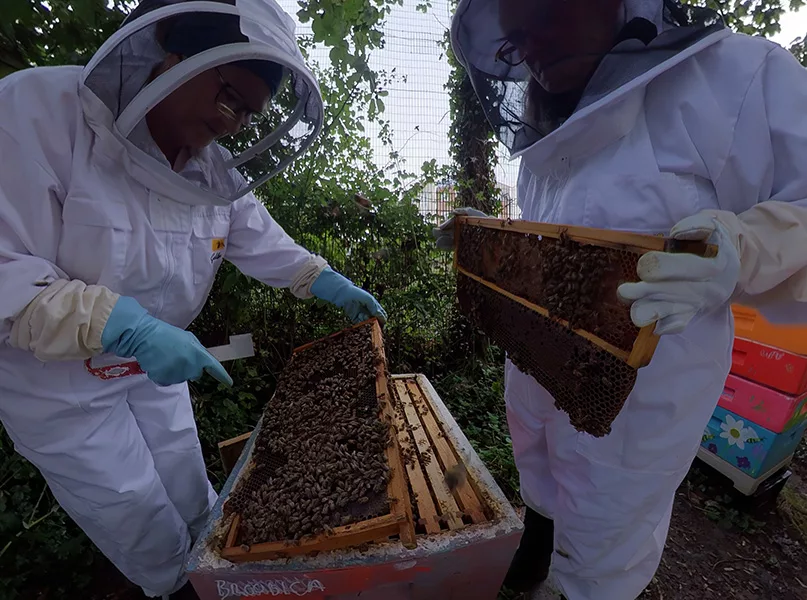
In addition, a second-hand cycle to work scheme, through which South Downs provides interest-free loans to its staff to purchase second-hand bikes, works to embed the philosophy of ‘people, planet, profit’ even more deeply within the local community.
“Through the second-hand bike scheme, our staff are recycling whilst supporting small businesses and charities and saving the planet by not driving cars,” Anderson outlines.
In terms of profit, South Downs enjoyed an all-time high revenue in 2023, which it is using to boost community improvement schemes and improve its facilities.
“When you talk about profit in the same breath as sustainability, it can seem crude, but at South Downs we always strive to reinvest revenue into the community around us.”
For example, in 2023, South Downs ran a ‘Swap, Shop, and Donate’ event at its free community Christmas fair, aimed at supporting low-income families during the festive season.
“We believe in the power of community, wellness, and environmental responsibility, values that are woven into the fabric of everything we do”
Duncan Anderson, CEO, South Downs Leisure
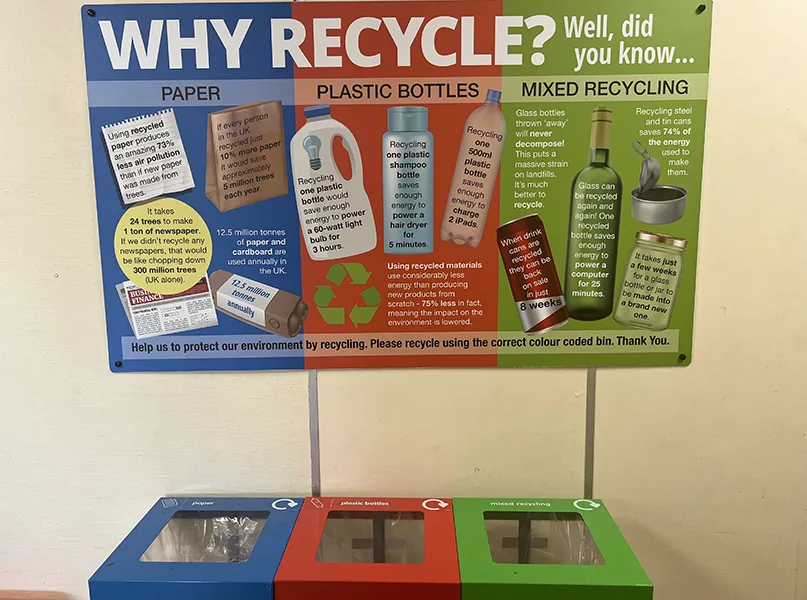
A LASTING IMPACT
As a result of its internalised philosophy of ‘people, planet, profit’ that sees the company practising sustainability as second nature, South Downs has achieved widespread recognition and various awards.
In 2022, the trust won the Adur and Worthing Sustainable Business of the Year award, and in 2023 it was named the Active Sussex Sustainable Business of the Year, both of which speak volumes about South Downs’ ongoing and authentic commitment to sustainability.
“We’re very proud of these awards and achievements, as they reward our staff for their hard work,” Anderson shares.
Furthermore, the company’s involvement in the recent Let’s Go! Net Zero campaign, which is aimed at helping smaller businesses initiate sustainable in-house practices, has been equally as rewarding.
“As a result of Let’s Go! Net Zero, I’m now a green business champion for West Sussex,” Anderson reveals.
Most importantly, South Downs’ status as an award-winning sustainable trust demonstrates its core values, which are rooted in sustainability, and its mission to identify the issues that matter.
“Sustainability isn’t just a buzzword at South Downs – it’s a way of life”
Duncan Anderson, CEO, South Downs Leisure
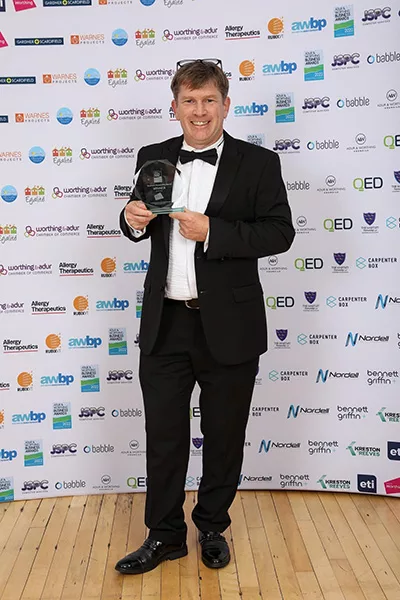
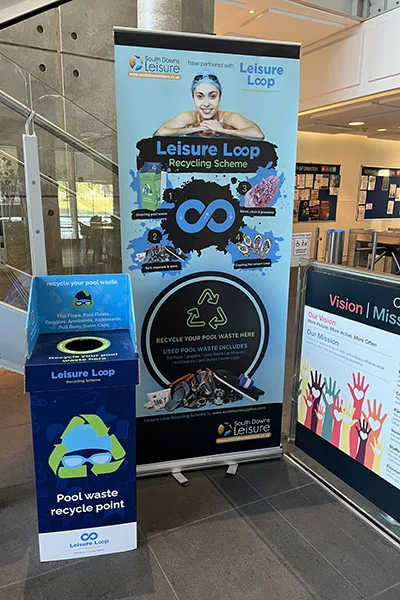
EDUCATING AN ERA OF SUSTAINABILTY
To maintain a consistent approach to sustainability across the trust, Anderson has invested significant time and thought into how to embed this culture through training and staff initiatives.
“I worked closely with Amanda Turner, who holds a PhD in Geophysics and is a sustainability expert, to develop a staff training programme. This involved an internal in-person course and an NVQ Level 2 course, with over 70 hours of online training in environmental sustainability, which saw participants emerge as Sustainability Champions,” Anderson informs.
“Staff have also toured windfarms, studied the ecology of the sea, and learned about waste management from our partner, Recorra, all of which have given us a clear idea of the direct impact that sustainable practices at South Downs can have. The training has fed into a change in our overall culture.”
A plethora of strategies and initiatives have been implemented by South Downs over the years as a result of a change in culture, each of which weaves sustainability into the fabric of the trust.
For example, staff uniforms, sourced from Pinnacle UK, are now made from recycled plastic, 350 solar panels have been installed on-site to produce 98,000 kilowatt hours (KwH) of electricity, and electric bikes are now the preferred mode of transport used by employees between sites.
“For every mile that we’re not driving cars between our sites, we’re saving around 400 grams (g) of carbon dioxide equivalent (CO2e). The aim is that each bike does around 400 miles a year,” Anderson reveals.
Furthermore, Worthing Leisure Centre’s beehives, run by its Group Fitness Manager, Violet Czajewska, support the local ecology whilst educating customers and staff about the vital role of bees.
Overall, South Downs’ staff training initiatives and culture of environmental preservation help to deeply embed the trust’s core values of fostering a more sustainable future.
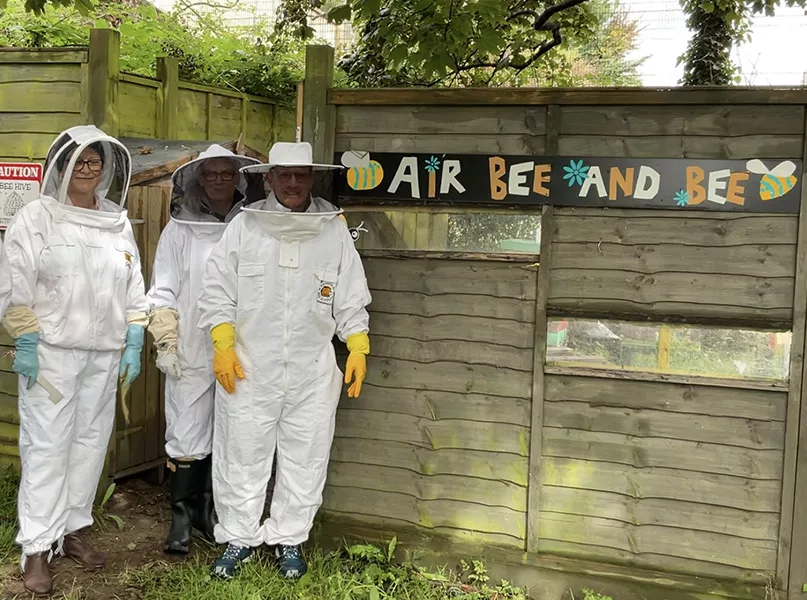
FUTURE PLANNING
Over the past four years, South Downs has reduced its carbon footprint by more than 30 percent.
Going forward, the trust has bold ambitions to make its dryside and wetside facilities carbon neutral by 2030 and 2040, respectively.
“What we’re trying to do is to achieve net zero on our sites quicker than the government’s timeline of 2050. We want to be able to see the impact of what we’re doing within our lifetime,” Anderson enthuses.
To achieve its goal, South Downs intends to integrate its ‘people, planet, profit’ philosophy more deeply within ongoing sustainability activities, minimise fossil fuel use where possible, and make decisions at board level with sustainable development in mind.
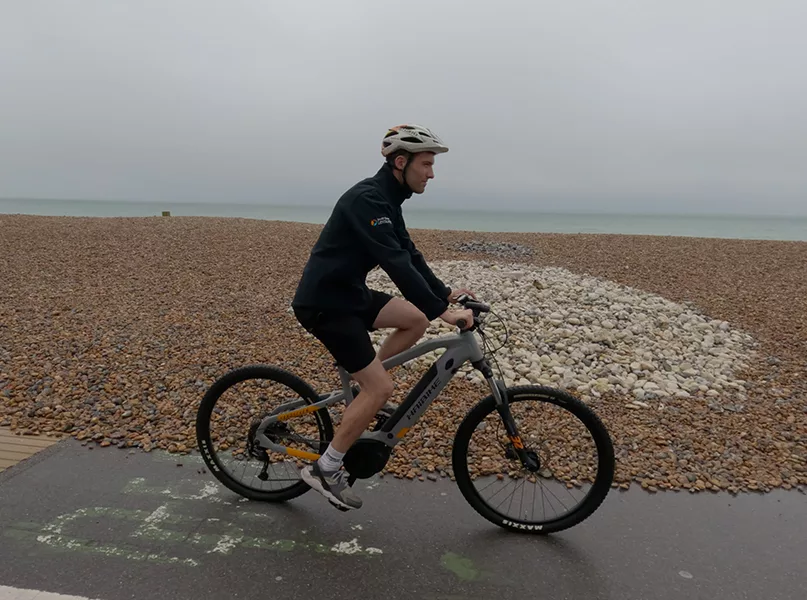
Furthermore, in a change from recent years, South Downs’ centralised focus for 2024 will be on its people.
“Looking back to 2022, we focused on utilities and reducing our fossil fuel use. Last year was all about reducing waste, but in 2024, we’ll focus on developing a health and well-being strategy for the benefit of the people in our community, without losing sight of waste management or fossil fuel use.”
South Downs’ people-centric approach will encourage socially deprived and low-income members of the community to come to its sites and use the facilities.
In terms of expansion, South Downs is always looking to evolve, but a culture of togetherness will forever be at the heart of the trust.
“It’s all about the triple bottom line of ‘people, planet, profit’, and changing the culture for good,” Anderson concludes.



